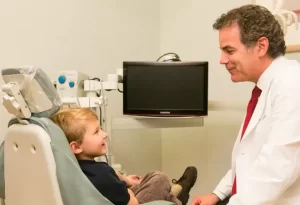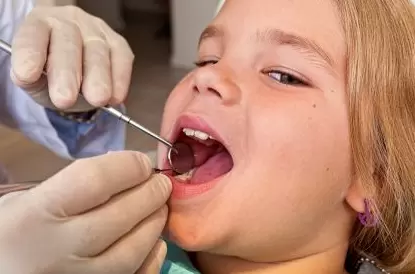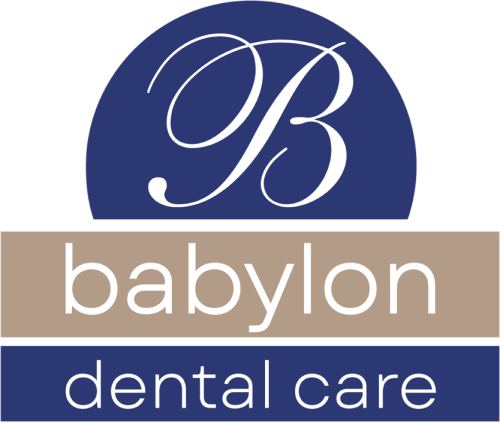
Early childhood decay (cavities), sometimes called bottle mouth or baby bottle syndrome, is an infectious disease marked by tooth decay during infancy and early childhood. According to the American Dental Association, dental caries is the most prevalent childhood chronic disease. Left untreated, it can cause serious problems, including tooth loss.
Babylon Dental Care’s team of doctors and hygienists, along with Dr. Azin Tarifard, are committed to helping parents prevent early childhood decay.
Causes of Tooth Decay in Infants
Decay occurs when sugar is allowed to linger on the child’s teeth and gums. The sugar makes it easy for bacteria to quickly form acids that decay the teeth. Since milk and juice are often sugar-laden staples in an infant and young child’s diet, early childhood cavities are quite common.

Children are particularly at risk for caries if they are given bottles of milk at night, since saliva production decreases and there is less chance of the damage-causing bacteria washing away.
Early Childhood Caries Symptoms
Parents should examine their children’s teeth regularly and schedule an appointment if they notice signs of decay. Symptoms of bottle mouth may include white, black, or brown spots on the teeth, swelling in the gums or face, or mouth pain.
Steps to Prevent Early Childhood Decay
When a child’s teeth decay, it is problematic for several reasons. In addition to eating and speaking, the primary teeth are needed to reserve space in the child’s jaw for the adult teeth and give structure to his or her face. Fortunately, there are a few steps parents can take to prevent cavities.
- Gently wipe your baby’s teeth and gums after feedings to remove decay-causing traces of milk.
- As soon as your child’s first tooth emerges, schedule his or her first dental appointment. This will allow Dr. Azin Tarifard to monitor your child’s oral health and identify and treat potential problems early on.
- When your child has his or her first tooth, begin brushing the teeth and gums with a small, soft toothbrush and water. Discuss with Dr. Azin Tarifard when it will be appropriate to begin using toothpaste.
- Do not put your child to bed with a bottle containing anything other than water. If you find it difficult, try making the transition slowly by diluting the milk with water over a few weeks’ time.
- Never give your child a pacifier covered in sugar, honey, or other sweeteners.
- Do not give your child soft drinks. They contain a high amount of decay-causing sugar and carry no nutritional value.
- Bottles should not be used as pacifiers. Rather than allowing your child to suck on a bottle of milk throughout the day outside of meal times, switch to water. The goal is to limit the amount of time sugar makes contact with your child’s teeth.
- If your water does not contain fluoride, you may need to use a fluoride supplement. Fluoride is a mineral that helps prevent tooth decay.
By taking a few steps and making a few crucial changes, parents can significantly decrease the chances of their infants and children experiencing early childhood caries.
